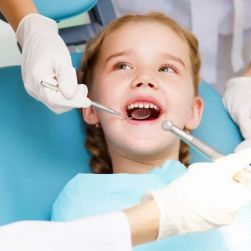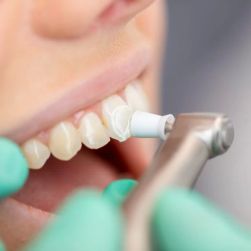Introduction: Understanding the Link Between Diabetes and Oral Health
Diabetes is a chronic condition that affects millions of older adults in the United States, impacting various aspects of their health, including oral health. As individuals age, managing diabetes becomes increasingly crucial to preventing a host of complications, one of which is oral health deterioration. Older adults with diabetes are at a higher risk for a range of oral health issues, such as gum disease, dry mouth, and oral infections. Understanding how diabetes specifically influences oral health in seniors can aid in developing effective prevention and management strategies. This article explores the relationship between diabetes and oral health in older adults, highlighting crucial insights and practical recommendations.
The Connection Between Diabetes and Gum Disease
One of the foremost ways diabetes impacts oral health in older adults is by increasing their susceptibility to gum disease. Elevated blood sugar levels can lead to a higher glucose concentration in saliva, fostering a favorable environment for harmful bacteria to thrive. These bacteria are often responsible for infections like gingivitis and periodontitis. A study by the American Dental Association revealed that older adults with poorly managed diabetes have a doubled risk of developing periodontal disease compared to those without diabetes. Regular dental check-ups and maintaining optimal blood sugar levels are critical steps toward mitigating this risk. Furthermore, incorporating routine oral hygiene practices such as brushing with fluoride toothpaste and flossing can significantly reduce the accumulation of plaque, thereby protecting gum health.
Impact of Diabetes-Induced Dry Mouth
Dry mouth, or xerostomia, is another common oral health issue faced by older adults with diabetes. The condition arises due to reduced saliva production, which is a side effect of diabetes medications and high blood sugar levels. Saliva plays a vital role in neutralizing acids produced by bacteria, cleansing the mouth, and aiding in digestion. In its absence, the risk of tooth decay, gum disease, and oral infections increases drastically. To combat dry mouth, seniors should stay hydrated by drinking plenty of water and consider using a humidifier in their homes. Dentists may also recommend saliva substitutes or stimulants, alongside reinforcing the importance of regular dental visits for early detection and management of oral health complications.
Increased Likelihood of Oral Infections
Older adults with diabetes are more prone to oral infections due to a compromised immune system and reduced wound healing capacity. Common infections include candidiasis, a fungal infection that manifests as white patches in the mouth and can be quite uncomfortable. To manage and prevent such infections, maintaining good oral hygiene, controlling blood sugar levels, and adhering to prescribed antifungal treatments are essential. It is also beneficial for seniors with diabetes to discuss their condition with a dental care provider whenever visiting dental clinics, like Dentistry Toothtruth, so they can receive personalized care tailored to their specific needs.
Practical Oral Health Management Strategies for Older Adults with Diabetes
Effective management of oral health in older adults with diabetes entails a multifaceted approach. Preventive dental care, including regular cleanings and check-ups, is crucial to detect and address potential issues early. Seniors should adopt a consistent and thorough oral hygiene routine that includes brushing twice daily, flossing, and using an antiseptic mouthwash. Managing diabetes through a balanced diet, regular physical activity, and medication adherence is equally important. Healthcare professionals encourage monitoring blood sugar levels to keep them within target ranges, thereby minimizing the adverse effects of diabetes on oral health.
Conclusion: Taking Action for Better Oral Health
In conclusion, diabetes significantly affects oral health in older adults, increasing the risks of gum disease, dry mouth, and oral infections. Understanding and addressing these challenges requires proactive management both at home and through professional care. By focusing on excellent oral hygiene, regular dental visits, and effective diabetes management, seniors can enhance their oral health and quality of life. Older adults and their caregivers should collaborate with healthcare professionals to develop comprehensive care plans. Taking these steps will not only help preserve oral health but also contribute to overall well-being and longevity.






